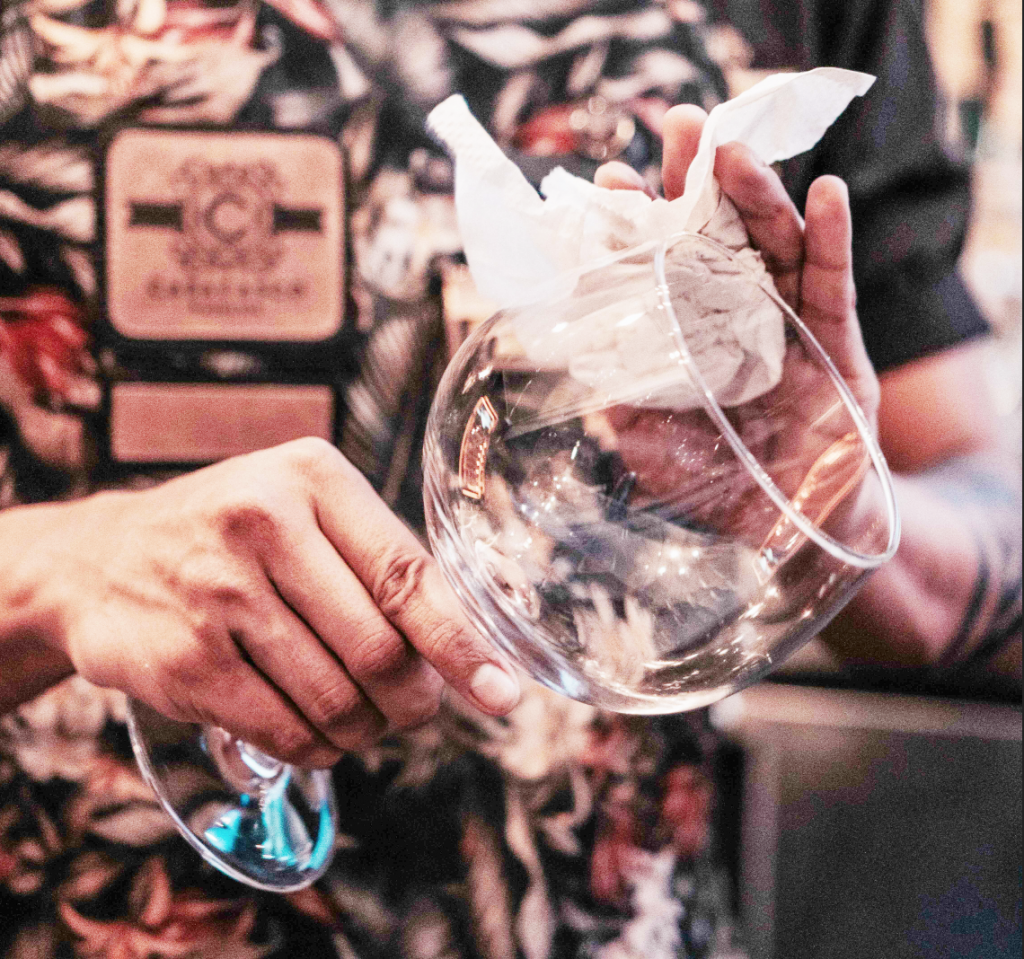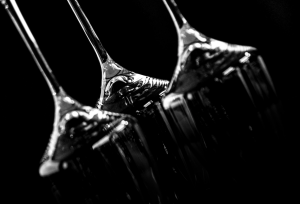
Tips to prolong your glassware life. Maintaining your glassware is an investment!
Sparkling glassware doesn’t just make an impression on your customers – it’s a part of your brand and how your customers interact with your beverage. Prolonging your glassware is almost as important as the craft it holds. As such, high-quality glassware is a big investment — protecting and maintaining this investment is essential to the success of your operation.
To retain and prolong the characteristics of glass over time and reduce the risk of cracks and breakages, it is important to take certain steps for its optimal use, cleaning, and preservation.

Glassware Cleaning Tips
Thermal shock and mechanical shock are the primary factors affecting the lifecycle of glassware. Foodservice glassware absorbs thermal and mechanical shocks on a daily basis. Eventually, it will give in to the buildup of these shocks, and breakage will occur. If your glassware shows the wear and tear of rigorous use, it should be retired — before it can break in-service or otherwise affect your customers’ opinion of your operation.
Terms you need to be familiar with:
Mechanical shock in glassware is the direct result of contact with another object, such as a spoon, another glass, or a piece of china. This kind of contact can cause a minute abrasion, invisible to the eye, but a source of weakness in the glass, making it more susceptible to breakage from impact or thermal shock.
Thermal Shock. Transitioning glass from one extreme temperature to the next will cause stress to the glassware item and could risk breakage from thermal shock.
To avoid this, we have a little bit of advice. Try to avoid putting hot beverages into a cold glass. If you have just rinsed your glass in cold water or it has been in a cold location, pouring hot tea, coffee or placing other heated items into it can cause it to stress and crack. This works the other way too- just be mindful to only expose your glass to a higher or lower temperature when it is already at room temperature.
Do’s
- ALWAYS separate glassware, dinnerware, and flatware bus tubs
- ALWAYS use an ice scoop to fill glasses with ice
- ALWAYS stack items specifically marked as stackable
- ALWAYS allow freshly washed glasses to return to room temperature before going back into service
- ALWAYS remove chipped or cracked glassware from service for safety reasons
- ALWAYS preheat glasses used for warm drinks with warm water
- ALWAYS load glassware into a plastic storage rack
- ALWAYS use the proper racks for each glass
- ALWAYS remove ice and beverage before placing the glass in bus tub to allow the glass to return to room temperature before dishwashing (to avoid a thermal shock)
- ALWAYS keep the proper amount of par levels for the operation
Dont’s
- NEVER mix glassware, dinnerware, and flatware in the same bus tub
- NEVER scoop ice with glasses
- NEVER stack glasses that are not marked stackable
- NEVER have glass to glass contact—avoid picking more than 1 glass up at once
- NEVER put flatware into glasses
- NEVER use a dishwasher warm glass for serving cold beverages
- NEVER allow the glass to make contact with the beer tap
- NEVER allow glassware to remain soiled overnight or for long periods (max 2 hours)
- NEVER pick up glasses in bouquets
- NEVER pick large glass items up by the rim (especially home decor and bubble balls)
Interested in learning more about how to become a legendary brewery brand? Visit our other blog post. We hope you enjoyed our tips to prolong your glassware life.
Source libbey glass handling.png




